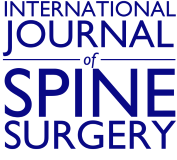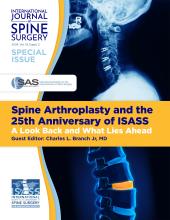ABSTRACT
Background This manuscript is a review of the literature investigating the use of mesenchymal stem cells (MSCs) being applied in the setting of spinal fusion surgery. We mention the rates of pseudarthrosis, discuss current bone grafting options, and examine the preclinical and clinical outcomes of utilizing MSCs to assist in successfully fusing the spine.
Methods A thorough literature review was conducted to look at current and previous preclinical and clinical studies using stem cells for spinal fusion augmentation. Searches for PubMed/MEDLINE and ClinicalTrials.gov through January 2021 were conducted for literature mentioning stem cells and spinal fusion.
Results All preclinical and clinical studies investigating MSC use in spinal fusion were examined. We found 19 preclinical and 17 clinical studies. The majority of studies, both preclinical and clinical, were heterogeneous in design, due to different osteoconductive scaffolds, cells, and techniques used. Preclinical studies showed promising outcomes in animal models when using appropriate osteoconductive scaffolds and factors for osteogenic differentiation. Similarly, clinical studies have promising outcomes, but differ in their methodologies, surgical techniques, and materials used, making it difficult to adequately compare between the studies.
Conclusion MSCs may be a promising option to use to augment grafting for spinal fusion surgery. MSCs must be used with appropriate osteoconductive scaffolds. Cell-based allografts and the optimization of their use have yet to be fully elucidated. Further studies are necessary to determine the efficacy of MSCs with different osteoconductive scaffolds and growth/osteogenic differentiation factors.
Level of Evidence 3.
- stem cells
- mesenchymal stem cells
- MSC
- spinal fusion
- biologics
- regenerative medicine
- autograft
- bone graft
- scaffold
Footnotes
Disclosures and COI: The authors received no funding for this study and report no conflicts of interest.
- This manuscript is generously published free of charge by ISASS, the International Society for the Advancement of Spine Surgery. Copyright © 2021 ISASS







